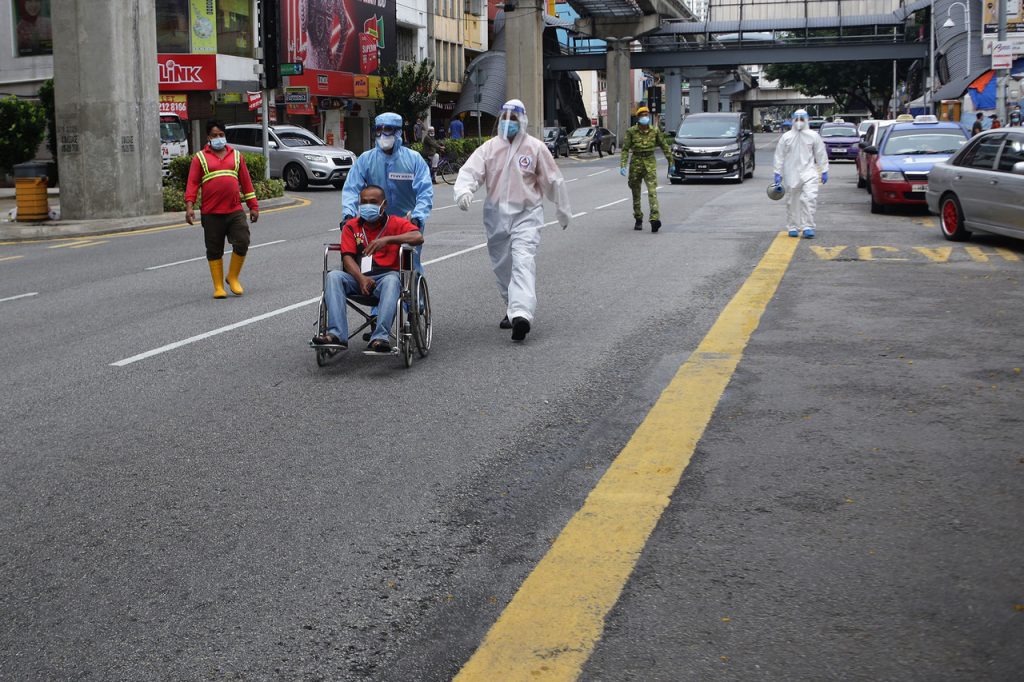
KUALA LUMPUR, May 1 (NNN-BERNAMA) — It is International Workers’ Day today, but there are no assemblies, parades or marches, thanks to the COVID-19 pandemic that has driven man indoors, not only in Malaysia but around the world as well.
A public holiday it is but many people are working, attending to COVID-19 patients, conducting tests on suspected cases, distributing food and other essentials to those in quarantine, and conducting checks on the movement of people in the cities, countryside and border areas.
Others, like those engaged in the e-hailing business, are rushing in cars and motorcycles to deliver food and other items to the people staying at home and working from home so that they can remain safe.
The Movement Control Order (MCO), which encourages people to stay at home as much as possible for their own safety, has been in force since March 18 and is into its fourth two-week phase from April 29 to May 12.
Those required to go to work – the healthcare workers, security personnel and food deliverymen – are playing an important role to ensure that life goes on unabated as the people painstakingly adjust to what has come to be called the new normal.
The International Labour Organisation (ILO) has said that some 1.6 billion people around the world employed in the informal economy – the economic activities, enterprises, jobs and workers not regulated or protected by the state – could see their livelihoods destroyed due to the continued decline in working hours brought on by lockdowns to curb the spread of COVID-19.
The disease, which broke out in China in December 2019, has infected over 3.2 million around the world and killed more than 229,000 as of April 30. In Malaysia, COVID-19 infected 6,002 and killed 102 as of that date. Up to 4,171 patients have recovered.
The COVID-19 pandemic has opened the eyes of many to the rights and welfare of workers, particularly in terms of health, safety, aid and compensation.
Malaysian Trades Union Congress (MTUC) president Datuk Abdul Halim Mansor said ensuring the health and safety of workers can no longer be considered a waste of expenditure but employers’ responsibility in ensuring the welfare of workers.
“In the new normal, employers must consider that we are working as a family rather than employer and labourers because the context that should be accepted is that we are a team whereby the company profits are invested in human capital development,” he told Bernama.
Malaysian Academic Association Congress (MAAC) president Prof Datuk Dr Mohd Idrus Mohd Masirin said the COVID-19 pandemic has challenged the expertise of manpower in various sectors such as health, economy, education and agriculture to assist the country.
“In addition to expertise, it has also challenged the mental and physical strength of the workforce, particularly the frontline workers who are patiently dealing with the pandemic.
“I wish to congratulate all the frontline staff who are working hard to overcome the challenge of this pandemic. Your service and sacrifice are highly appreciated,” he said.
As for educators, Mohd Idrus said, they should continue to give their commitment to ensure that the education system remains unaffected in this stressful and challenging times.
“Whatever the situation, we as academics have to be creative and innovative in keeping our education system running and delivering well. We are very fortunate to have good infrastructure and communication technology,” he said.
— NNN-BERNAMA






